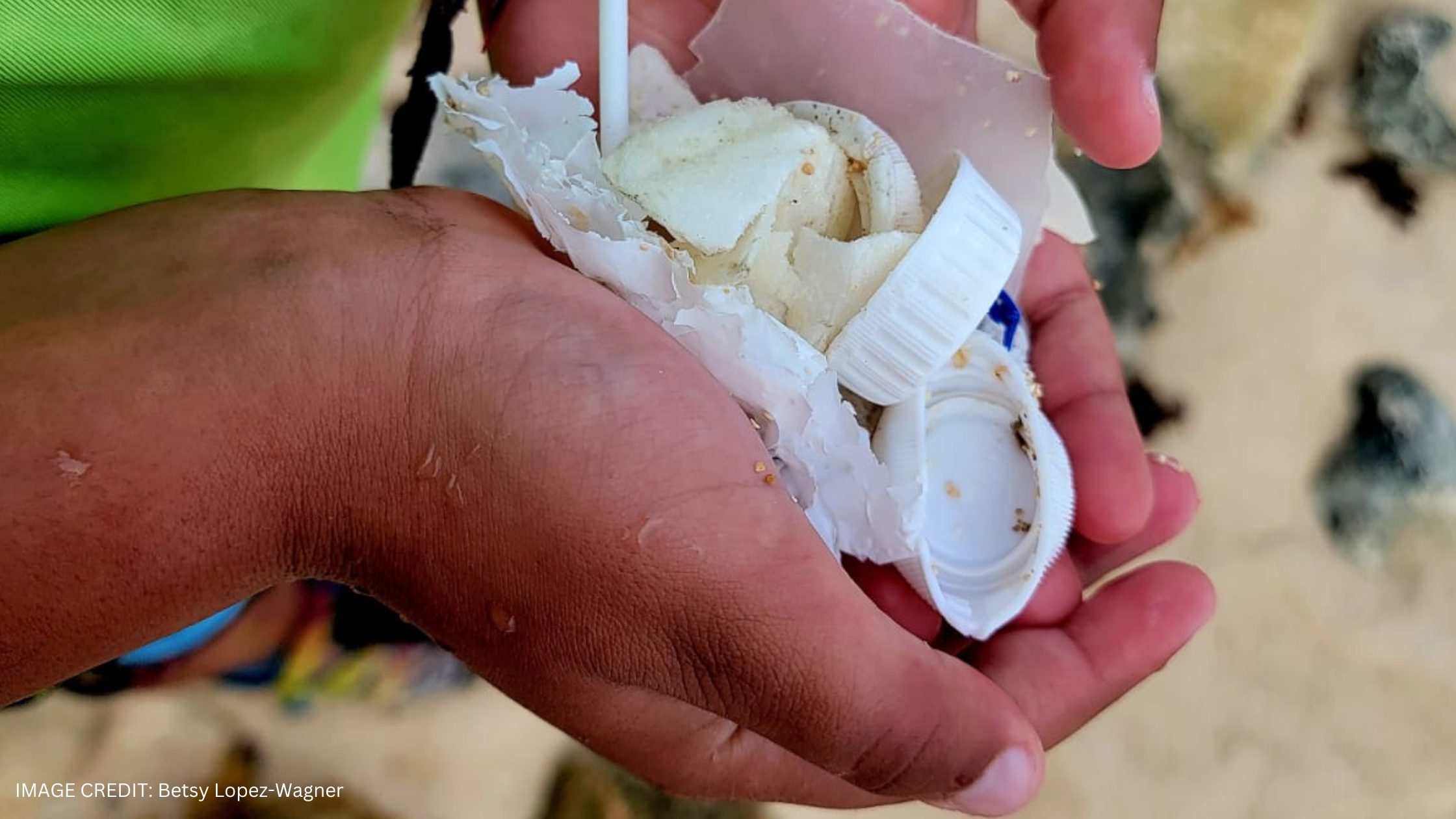Ocean Justice for All Requires Strong Action on Plastic Pollution

By: Marce Gutiérrez-Graudiņš y Roland González Pizarro
This op-ed was originally published in Spanish in El Diario on March 25, 2024.
***
The United States is the world’s top producer of plastic waste – yet our nation has not committed to taking strong action to break the lifecycle of plastics and the pollution we create. The inaction is in sharp contrast with the Administration’s recently released national Ocean Justice Strategy and runs contrary to the intended outcomes of the White House’s Ocean Climate Action Plan, released one year ago, to “advance climate solutions, promote environmental justice, and ensure sustainable coastal communities and a healthy and sustainable ocean economy.”
To address “environmental justice concerns related to the use of the ocean for economic, cultural, spiritual, and recreational purposes, and food security” is to take a strong stance against plastic pollution at home and abroad. Numerous studies and reports, including our own, developed in partnership with the United Nations Environment Programme, have determined that plastic is everywhere – in marine environments, fenceline communities, produce, and inside our own bodies.
At this critical moment, the United States lacks a national plastic strategy while over 100 communities across the country are affected by the production and incineration of plastics. Azul, a Latinx-led and serving ocean justice organization, alongside countless ocean advocates and activists, communities and young people, has been working for the last decade to disrupt the lifecycle of plastics and plastic pollution.
Plastic pollution is a growing crisis with devastating impacts on our environment and human health – especially for Black, Indigenous, Latinx and other communities of color. And, 92% of Latinx voters support doing more to prevent plastic pollution – that’s why this week, we called upon the U.S. Department of State, in a letter, to act on this imminent crisis by enforcing the reduction of plastic pollution, while reducing greenhouse gas emissions from its production, use, and disposal.
In November 2022, 175 nations, including the U.S., agreed to develop the first international and legally-binding agreement on plastic pollution by 2024.
A strong and ambitious Global Plastics Treaty must address the full lifecycle of plastic to ensure a just transition for communities and workers across the plastics lifecycle – including waste pickers – and guarantee meaningful engagement of groups and communities made vulnerable by the impacts of the plastics crisis.
A month out from treaty negotiations in Ottawa, Canada, and mere months to go until the final stage of negotiations, the Department of State, which carries jurisdiction over international treaties, has not effectively represented the interests of ocean justice communities.
We believe that to truly live up to its ideals and protect the health of its people, the U.S. must both commit and take action to reduce the scourge of plastic that is putting our communities here and abroad in grave danger.
Marce Gutiérrez-Graudiņš is the Founder and Executive Director of Azul. She is also a founder and steering committee member of the Ocean Justice Forum.
Roland Gonzalez Pizarro is the National Policy Associate for Azul.